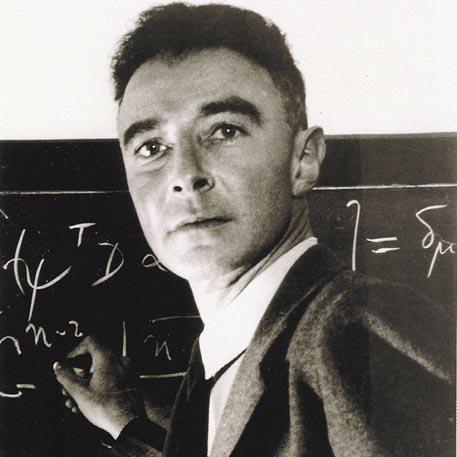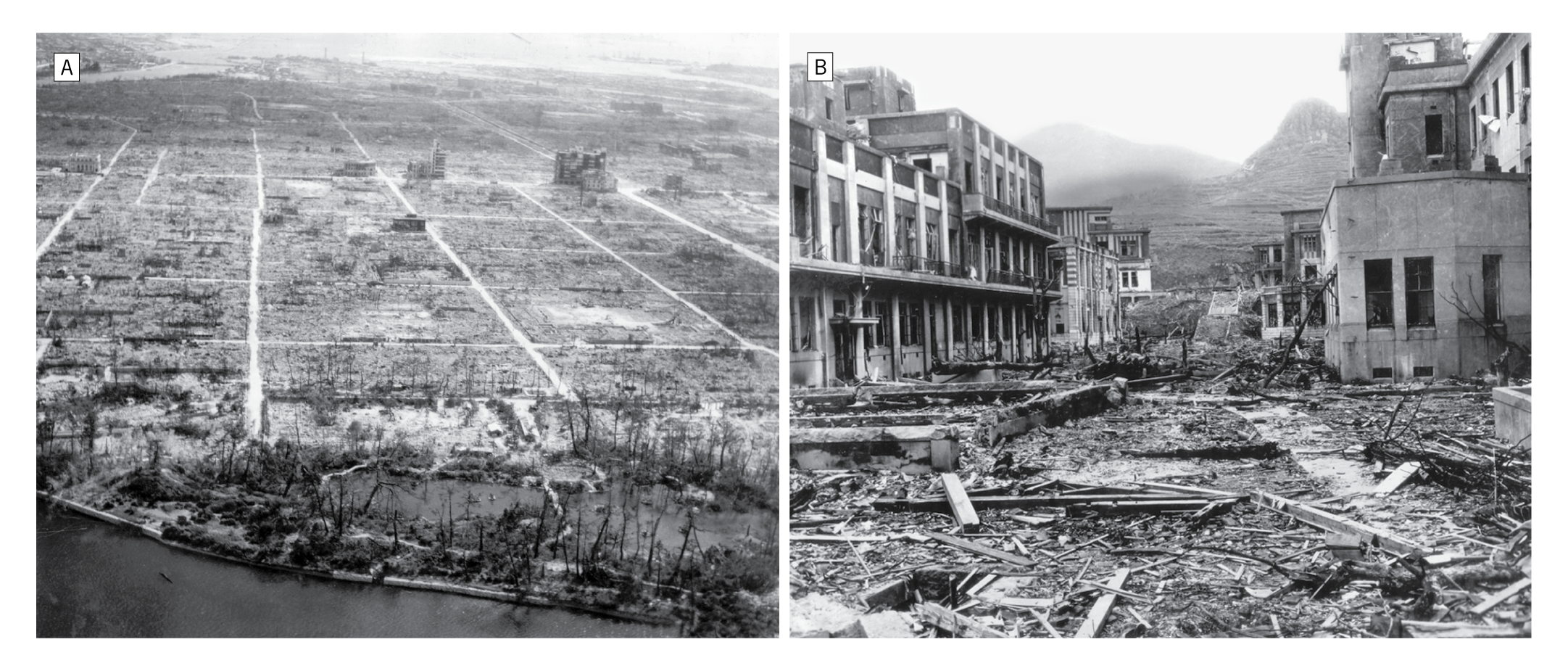Oppenheimer’s awareness of medical effects of atom bomb
Who was Oppenheimer? What did he do and did he have any regrets? And was he aware of the long-term medical effects of the atomic bomb? This article will answer these questions.
Who was Oppenheimer?
Robert Oppenheimer (1904-1967) is often credited with being the ‘father of the atomic bomb’ for his role in creating the first nuclear weapon during World War II. He was an American theoretical physicist, director of the Los Alamos Laboratory, who led the Manhattan Project.
It is not clear whether he was aware of the medical effects of the nuclear weapons.

Robert Oppenheimer
‘Oppenheimer’ – a film biography of his life was released on 21st July 2023.
This project led to the Little Boy and Fat Man atomic bombs being dropped on Hiroshima (6th August 1945) and Nagasaki (9th August 1945) respectively.

Little boy atomic bomb – used on Hiroshima.
It was estimated that by the end of 1945, 90,000-140,000 out of a civilian population of about 330,000 in Hiroshima, and 60,000-80,000 out of 280,000 in Nagasaki, had died; as a result of exposure to the intense heat, physical force, and ionising radiation emitted by the bombs.
These terrible events ended WWII.

Destruction by nuclear weapons at Hiroshima and Nagasaki.
What are the medical effects of nuclear weapons?
The medical effects of the atomic bomb upon humans can be put into the four categories below. With modern larger thermonuclear weapons, there would be a negligible number of survivors close to the centre of the blast.
So they would not experience the acute radiation effects; which were observed after the 16 kiloton yield Hiroshima bomb, due to its relatively low yield.
It is not clear whether Oppenheimer was aware of the following medical effects of nuclear weapons.
1. Initial stage (blast effects) – the first 1-9 weeks, in which are the greatest number of deaths, with 90% due to thermal injury and/or blast effects, and 10% due to lethal radiation exposure.

2. Intermediate stage (acute radiation poisoning) – from 10 to 12 weeks. The deaths in this period are from ionising radiation in the median lethal range (called LD50). Acute radiation sickness affects most survivors of the initial blast, causing symptoms such as nausea, vomiting, and bleeding.
3. Late period (short term effects) – lasting from 13 to 20 weeks. In this period there is some improvement in survivors’ condition.
4. Delayed period (long term effects) – from 20+ weeks. This is characterised by numerous complications, initially related to healing of thermal and mechanical injuries.
Later it can lead to blood disorders, cancer (e.g. leukaemia, thyroid and lung cancer) and less serious problems like cataracts; and in the next generation, birth defects including chromosomal abnormalities, cleft palate, small head size and learning difficulties.
So. Did Oppenheimer have any regrets?
Yes. Oppenheimer’s feeling of triumph disappeared in the months after the destruction of Nagasaki, which the scientist believed was unnecessary and unjustified.
His revulsion was so evident on his face that President Harry S. Truman asked him what was the matter when they met at the White House for the first time in October 1945. Oppenheimer told Truman,
Mr. President, I feel I have blood on my hands”.
In summary, it is not clear that Oppenheimer was aware of medical effects of the atomic bomb. But he changed his view of his work. And nonetheless he, and the Manhattan Project, changed the world. But the terrible dangers of nuclear weapons persist to this day.
Kings Charles’ fingers and psoriasis
Why is Prince Edward bald?

